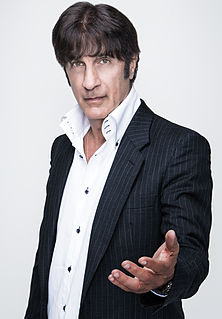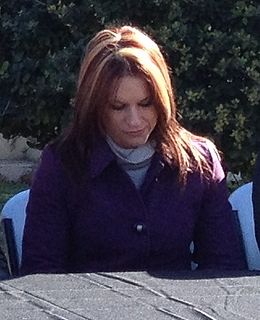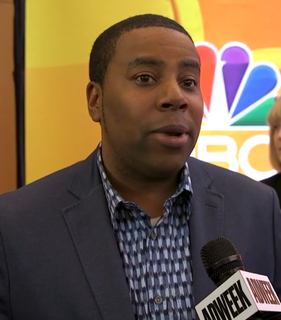A Quote by Jeannette Walls
One of the most challenging aspects of writing a memoir is finding your own voice, and you should be very careful about being influenced by someone else's voice.
Related Quotes
There's this pet phrase about writing that is bandied around particularly in workshops about "finding your own voice as a poet", which I suppose means that you come out from under the direct influence of other poets and have perhaps found a way to combine those influences so that it appears to be your own voice. But I think you could also put it a different way. You, quote, find your voice, unquote, when you are able to invent this one character who resembles you, obviously, and probably is more like you than anyone else on earth, but is not the equivalent to you.
There's this pet phrase about writing that is bandied around particularly in workshops about "finding your own voice as a poet", which I suppose means that you come out from under the direct influence of other poets and have perhaps found a way to combine those influences so that it appears to be your own voice.
The ability to walk in someone else's shoes, or in my case, play down in someone else's cleats is one of the very best things you can do. There's nobody in this world who doesn't have that voice in their head. Sometimes it's the best voice in the world, and it pumps you up, but sometimes the voice is down. I wanted my players to be able to hear my voice in their head instead of someone else's because I knew that was a narrative I could control.
We're always being told 'find your voice.' When I was younger, I never really knew what this meant. I used to worry a lot about voice, wondering if I had my own. But now I realize that the only way to find your voice is to use it. It's hardwired, built into you. Talk about the things you love. Your voice will follow.
Write like you write, like you can't help but write, and your voice will become yours and yours alone. It'll take time but it'll happen as long as you let it. Own your voice, for your voice is your own. Once you know where your voice lives, you no longer have to worry so much about being derivative.
Now, as I move through my fifties, I can be professional and domestic, creative and intellectual, patient and urgent. I have learned that we should never settle for someone else's definition of who we can be. Growing to this age, I realize, is kind of like feeling your voice deepen. It's still your voice, but it has more substance, and it sounds like it knows its own origins.
I loved the idea of doing impressions and mimicking and playing around with the spectrum of your own voice. That's what I enjoy most about doing voiceovers. You can be completely unconscious with the rest of your body and just concentrate on doing something with your voice, creating an entire character with your voice.
I got good at trying to throw a voice on a character from the very beginning as opposed to like reading it and sitting with it and mulling over it and stuff like that just try to read what it is and then try to put a funny voice to it like as soon as possible and stuff like that. Once you get laughs with your voice then you can start thinking about, you know the physical characteristics and how they might walk or if they stick out their buck teeth or if they wear an afro and stuff like that. I think like finding the voice of the character helps to like build the wardrobe and everything else.




































